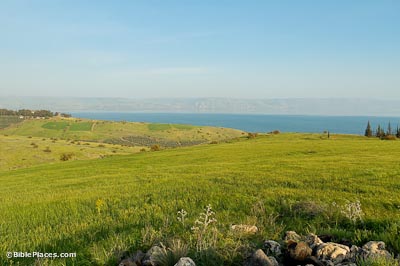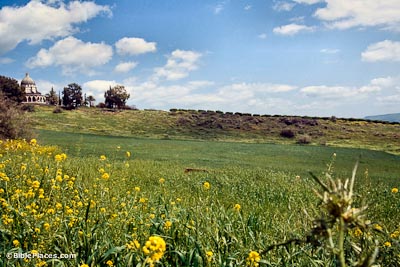
Bible Verse and Prayer for Today;
1 Cor 9:23 And this I do for the gospel’s sake, that I might be partaker thereof with you.
Prayer
Lord we at TruLight Ministries are Thankful for People that get involved in our Ministry in the Kingdom of God . People that Give , Donate and even pay Tithes to Ministries in the Kingdom of God , They do this for the Gospel sake . and that they might be Partakers thereof with You and us . Thank You Jesus for the Givers to the Gospel . Amen and Amen
Bybel Vers en Gebed vir Vandag
1 Kor 9:23 En dit doen ek ter wille van die evangelie, sodat ek saam met julle ‘n deel daarvan kan hê.
Gebed
1 Kor 9:23 En dit doen ek ter wille van die evangelie, sodat ek saam met julle ‘n deel daarvan kan hê.
Here, ons by TruLight Ministries is dankbaar vir mense wat betrokke raak by ons bediening in die Koninkryk van God. Mense wat gee, skenk en selfs tiendes betaal aan bedieninge in die Koninkryk van God, hulle doen dit ter wille van die evangelie, en sodat hulle saam met U en ons deel daarvan kan hê. Dankie Jesus vir die gewers aan die evangelie. Amen en Amen.

Bible Teaching of the Day
“Buffet your Body”
I have a Friend called Johnny , He is a Retired School Teacher that Loves Sport and Training Athletes even as a Pensioner he spends days on end Training Young Upcoming Athletes. This Article is dedicated to Him.
Any professional sport requires committed athletes. A professional athlete often dedicates several hours a day, most days a week, to intense, regimented training in order to gain the stamina, strength, and speed required to succeed. Paul, in 1 Corinthians 9:24–27, compares the need for self-discipline and training in a believer’s life to athletic training. Like a runner or a boxer, Paul says, “I buffet my body and make it my slave, lest possibly, after I have preached to others, I myself should be disqualified” (1 Corinthians 9:27, NASB).
First Corinthians 9:24–27 uses the metaphor of a winning athlete to illustrate a dedicated believer. Paul asks, “Do you not know that in a race all the runners run, but only one gets the prize? Run in such a way as to get the prize” (1 Corinthians 9:24). Paul compares the discipline necessary to grow spiritually to the self-mastery of an Olympic athlete who buffets—or disciplines by striking into submission—his body in a dedicated effort to win a race. While God works in us “to will and to act in order to fulfill his good purpose” (Philippians 2:13), believers must cooperate with Him by following the ways of God with serious dedication (see 1 Kings 8:61). Like a runner or boxer who buffets his body, a Christian brings his or her body under control to reach the “upward call of God in Christ Jesus” (Philippians 3:14, ESV).
This passage is not talking about salvation as the prize. Paul teaches clearly that salvation is a gift, not something that comes as a result of strenuous effort (Ephesians 2:8–9). Nothing can disqualify a true believer from salvation, but sin can disqualify us from having an impactful testimony (1 Corinthians 9:27). The prize Paul refers to is Christlikeness. He wanted to be able to say at the end of his life, “I have fought the good fight, I have finished the race, I have kept the faith. Now there is in store for me the crown of righteousness, which the Lord, the righteous Judge, will award to me on that day—and not only to me, but also to all who have longed for his appearing” (2 Timothy 4:7–8).
The goal, or prize, for each believer is to become more like Christ in heart and action (Romans 8:28–30). This is accomplished by the transformative work of the Holy Spirit (Romans 12:2). Believers do not buffet their bodies by doing more in their own strength or by following a legalistic, performance-based religion (Galatians 5:7–8). Rather, the true Christian life is lived by faith: “I have been crucified with Christ and I no longer live, but Christ lives in me. The life I now live in the body, I live by faith in the Son of God, who loved me and gave himself for me” (Galatians 2:20). Believers pick up their cross and die to self daily; believers buffet their bodies by first submitting them to Christ.
A believer continues to buffet his or her body for the sake of Christ by practicing self-control through the power of the Holy Spirit. This is similar to the way an athlete disciplines his or her body with strict self-control: diet, exercise, sleep, and lifestyle choices are highly regulated. A believer patiently endures the tests and trials of life to grow in Christlikeness. This means throwing off sin and anything that ensnares. As the writer of Hebrews exhorted, “Let us throw off everything that hinders and the sin that so easily entangles. And let us run with perseverance the race marked out for us, fixing our eyes on Jesus, the pioneer and perfecter of faith. For the joy set before him he endured the cross, scorning its shame, and sat down at the right hand of the throne of God. Consider him who endured such opposition from sinners, so that you will not grow weary and lose heart” (Hebrews 12:1–3). Believers grow in Christlikeness as they persevere in faith through the trials and temptations of this life.
As a runner or boxer keeps his eyes on the prize and so endures all kinds of hardship, so believers must keep their eyes on Christ and on that which will last forever (1 Corinthians 9:25). Believers “do not run like someone running aimlessly” and “do not fight like a boxer beating the air” (1 Corinthians 9:26). No, a believer continually buffets himself into submission to Christ. He or she does not allow the flesh to have control (Romans 13:14; 1 Thessalonians 4:4). Believers look forward to the day when God says to them, “Well done, good and faithful servant” (Matthew 25:23).
Bybel Lering vir die Dag
” Kasty jou liggaam “
Ek het ‘n vriend genaamd Johnny. Hy is ‘n afgetrede skoolonderwyser wat lief is vir sport en die opleiding van atlete, selfs as pensioenaris spandeer hy dae aaneen om jong opkomende atlete op te lei. Hierdie artikel is aan hom opgedra.
Enige professionele sport vereis toegewyde atlete. ‘n Professionele atleet wy dikwels ‘n paar uur per dag, die meeste dae van die week, aan intense, streng opleiding om die stamina, krag en spoed te verkry wat nodig is om te slaag. Paulus vergelyk in 1 Korintiërs 9:24–27 die behoefte aan selfdissipline en opleiding in ‘n gelowige se lewe met atletiese opleiding. Soos ‘n hardloper of ‘n bokser, sê Paulus: “Ek Kasty my liggaam en maak dit my slaaf, sodat ek nie miskien, nadat ek vir ander gepreek het, self gediskwalifiseer word nie” (1 Korintiërs 9:27).
Eers Korintiërs 9:24–27 gebruik die metafoor van ‘n wen-atleet om ‘n toegewyde gelowige te illustreer. Paulus vra: “Weet julle nie dat al die hardlopers in ‘n wedloop hardloop, maar net een die prys ontvang nie? Hardloop so dat julle die prys kan ontvang” (1 Korintiërs 9:24). Paulus vergelyk die dissipline wat nodig is om geestelik te groei met die selfbeheersing van ‘n Olimpiese atleet wat sy liggaam slaan – of dissiplineer deur tot onderwerping te slaan – in ‘n toegewyde poging om ‘n wedloop te wen. Terwyl God in ons werk “om te wil en te werk om sy welbehae te verwesenlik” (Filippense 2:13), moet gelowiges met Hom saamwerk deur die weë van God met ernstige toewyding te volg (sien 1 Konings 8:61). Soos ‘n hardloper of bokser wat sy liggaam slaan, bring ‘n Christen sy of haar liggaam onder beheer om die “opwaartse roeping van God in Christus Jesus” te bereik (Filippense 3:14).
Hierdie gedeelte praat nie van verlossing as die prys nie. Paulus leer duidelik dat verlossing ‘n geskenk is, nie iets wat as gevolg van strawwe inspanning kom nie (Efesiërs 2:8–9). Niks kan ‘n ware gelowige van redding diskwalifiseer nie, maar sonde kan ons diskwalifiseer om ‘n impakvolle getuienis te hê (1 Korintiërs 9:27). Die prys waarna Paulus verwys, is Christusgelykvormigheid. Hy wou aan die einde van sy lewe kon sê: “Ek het die goeie stryd gestry, ek het die wedloop voleindig, ek het die geloof behou. Nou is vir my die kroon van die geregtigheid voorgelê wat die Here, die regverdige Regter, my in daardie dag sal gee – en nie net aan my nie, maar ook aan almal wat sy verskyning verlang het” (2 Timoteus 4:7–8).
Die doelwit, of prys, vir elke gelowige is om meer soos Christus in hart en daad te word (Romeine 8:28–30). Dit word bereik deur die transformerende werk van die Heilige Gees (Romeine 12:2). Gelowiges slaan nie hul liggame deur meer in hul eie krag te doen of deur ‘n wettiese, prestasiegebaseerde godsdiens te volg nie (Galasiërs 5:7–8). Die ware Christelike lewe word eerder deur geloof geleef: “Ek is met Christus gekruisig en ek leef nie meer nie, maar Christus leef in my. Die lewe wat ek nou in die liggaam leef, leef ek deur die geloof in die Seun van God wat my liefgehad het en Homself vir my oorgegee het” (Galasiërs 2:20). Gelowiges tel daagliks hulle kruis op en sterf aan hulleself; gelowiges slaan hulle liggame deur hulle eers aan Christus te onderwerp.
’n Gelowige hou aan om sy of haar liggaam ter wille van Christus te slaan deur selfbeheersing te beoefen deur die krag van die Heilige Gees. Dit is soortgelyk aan die manier waarop ’n atleet sy of haar liggaam met streng selfbeheersing dissiplineer: dieet, oefening, slaap en leefstylkeuses word hoogs gereguleer. ’n Gelowige verduur geduldig die toetse en beproewinge van die lewe om in Christus-gelykvormigheid te groei. Dit beteken om sonde en enigiets wat verstrik, af te gooi. Soos die skrywer van Hebreërs vermaan het: “Laat ons ook alles wat ons hinder afgooi en die sonde wat ons so maklik verstrik. Laat ons met volharding die wedloop hardloop wat vir ons voorlê, die oog gevestig op Jesus, die Leidsman en Voleinder van die geloof. Want vir die vreugde wat Hom voorgehou is, het Hy die kruis verdra, die skande verag en aan die regterhand van die troon van God gaan sit. Ag op Hom wat sulke teenstand van sondaars verdra het, sodat julle nie moeg word en moed verloor nie” (Hebreërs 12:1–3). Gelowiges groei in Christusgelykvormigheid terwyl hulle in die geloof volhard deur die beproewinge en versoekings van hierdie lewe.
Soos ‘n hardloper of bokser sy oë op die prys hou en so allerhande ontberinge verduur, so moet gelowiges hul oë op Christus hou en op dit wat ewig sal hou (1 Korintiërs 9:25). Gelowiges “hardloop nie soos iemand wat doelloos hardloop nie” en “veg nie soos ‘n bokser wat in die lug slaan nie” (1 Korintiërs 9:26). Nee, ‘n gelowige slaan homself voortdurend tot onderwerping aan Christus. Hy of sy laat nie toe dat die vlees beheer het nie (Romeine 13:14; 1 Tessalonisense 4:4). Gelowiges sien uit na die dag wanneer God vir hulle sê: “Mooi so, goeie en getroue dienaar” (Matteus 25:23).

Today’s Devotional
The idiom “to lower the bar” implies lowering the standards of quality that are expected of or required for something.
For quite some time, the Lord has been speaking to me personally about lowering the bar. The Lord addressed me for often, when the Lord lays something on my heart, I will try to find a way to soften the blow, or not to be too harsh, or not to be offensive. My excuse used to be that when I speak, I want to speak out of love, and I do not want to drive people away from God.
Then the Lord said “STOP!” and I had to repent for stripping the Word of its authority, by trying to make it more acceptable or softer on the ear.
Today I want to encourage others to take a bold stand and to resist lowering the bar. For instance, when believers are instructed to be holy in 1 Peter 1:16, how can we tell people that it is OK if they sin or stumble, that God understands, or that God’s grace is bigger than any sin. Does not the Word say that without holiness no one will see the Lord. (Hebrews 12:14)
How can we say that God loves the sinner just as he is and in doing so create an impression that God will continue loving him just as he is without him having to lay down the old man (old life or old nature) which is corrupted by lust and deception. (See Ephesians 4:22)
Paul wrote unto the churches of Galatia: “For am I now seeking the approval of man, or of God? Or am I trying to please man? If I were still trying to please man, I would not be a servant of Christ.” (Galatians 1:10)
Let us not lower the bar, to accommodate or to please those God entrusted in our care, but let us continue to proclaim God’s Word, in fullness, so that man can be saved and be delivered from sin and unrighteousness.
Vandag se Bemoediging
Die idioom “om die lat te verlaag” impliseer die verlaging van die standaarde van kwaliteit wat van iets verwag of vereis word.
Vir ‘n geruime tyd het die Here persoonlik met my gepraat oor die verlaging van die lat. Die Here het my aangespreek, want dikwels, wanneer die Here iets op my hart lê, sal ek probeer om ‘n manier te vind om die hou te versag, of om nie te hard te wees nie, of om nie aanstootlik te wees nie. My verskoning was altyd dat wanneer ek praat, ek uit liefde wil praat, en ek wil nie mense van God af wegdryf nie.
Toe sê die Here “STOP!” en ek moes berou hê dat ek die Woord van sy gesag gestroop het deur te probeer om dit meer aanvaarbaar of sagter op die oor te maak.
Vandag wil ek ander aanmoedig om ‘n dapper standpunt in te neem en te weerstaan om die lat te verlaag. Byvoorbeeld, wanneer gelowiges in 1 Petrus 1:16 opdrag kry om heilig te wees, hoe kan ons vir mense sê dat dit reg is as hulle sondig of struikel, dat God verstaan, of dat God se genade groter is as enige sonde? Sê die Woord nie dat sonder heiligheid niemand die Here sal sien nie? (Hebreërs 12:14)
Hoe kan ons sê dat God die sondaar liefhet net soos hy is en sodoende die indruk skep dat God hom sal aanhou liefhê net soos hy is sonder dat hy die ou mens (ou lewe of ou natuur) wat deur wellus en misleiding verdorwe is, hoef af te lê? (Sien Efesiërs 4:22)
Paulus het aan die kerke van Galasië geskryf: “Want soek ek nou die goedkeuring van mense of van God? Of probeer ek mense behaag? As ek nog steeds mense behaag, sou ek nie ‘n dienaar van Christus wees nie.” (Galasiërs 1:10)
Laat ons nie die lat verlaag om diegene wat God in ons sorg toevertrou het, te akkommodeer of te behaag nie, maar laat ons voortgaan om God se Woord in volheid te verkondig, sodat die mens gered kan word en van sonde en ongeregtigheid verlos kan word.

TruLight Ministries Daily Entertainment

TruLight TV – Clean Comedy – JEFF ALLEN (2 OF 2)
INTRODUCTION TO THE GOSPEL ARTISTS
MEET : JENN BOSTIC

Jennifer Christiana Bostic (born January 3, 1986) is an American country music and Christian music singer-songwriter, based in Nashville, Tennessee.
In 2012, her song “Jealous of the Angels” was released. Her album, Jealous, was released in the United Kingdom and Ireland in September 2012, and her song “Jealous of the Angels” was released as her debut single in the UK in December. The song reached number one on the UK singer-songwriter charts.
Early life and education
Born in Philadelphia, Bostic was raised in Waconia, Minnesota. Her father, a musician, James Regan Bostic, was killed in a motoring accident when she was ten, an event which had a huge impact on her decision to become a musician. “The first time I sat down at the piano after the accident, I shut my eyes and honestly felt my dad’s presence next to me. I poured my heart into those first few songs. The only way I could connect with him was when I played music. I still feel that way.” Her mother is Barbara Ann Williams Bostic, and brother is Jeffrey James Bostic.
After graduating from high school, she went on to study music education at the Berklee College of Music in Boston, Massachusetts.
Career
After college, she moved to Nashville to begin her career, becoming a regular performer and participating in writers’ rounds. However, many of Nashville’s record labels were unreceptive to her musical style, which has been described by South Carolina’s The Anderson Independent-Mail as “too pop for country and too country for pop”.[4] She has also toured the U.S., playing at venues across the country, including the Rockwood Music Hall, in New York City; and the Hotel Café in Los Angeles, California.
Bostic worked with writer and producer Barrett Yeretsian – whose credits include the 2010 Christina Perri song “Jar of Hearts” – on her first album Jealous, released in 2012. Her song, “Jealous of the Angels”, which first appeared on her extended-play album Change, garnered Bostic five awards at the 2012 Independent Country Music Association Awards; for Overall Winner, Best Female Country Artist, Best Musician, Best Songwriter and Country Music Song of the Year.
“Jealous of the Angels” – a song inspired by her father – became popular in the UK after it was played by broadcaster Simon Bates on his Simon Bates at Breakfast show on Smooth Radio as part of the Our Tune strand on May 14, 2012, that had featured a story about loss.The song was quickly among the station’s Top 10 Most Played for the week, and went on to receive over two million views on YouTube. It was also picked up by other UK radio networks, including BBC Radio 2, where Terry Wogan featured it on his Sunday morning Weekend Wogan show. It was also added to the BBC Radio 1 playlist.
Much like “Jealous of the Angels”, her song “Not Yet” received a popularity boost, when famous League of Legends streamer and YouTuber Uberdanger began putting a troll link at the end of his videos. It claims it’s going to take you to his newest creation, but instead starts playing “Not Yet” if it’s not yet finished. Arguably, this made “Not Yet” her second music video to go over million views, with the most frequent comment being “Goddarn it Uberdanger, you got me again”.
She appeared as a guest on Smooth Radio’s Simon Bates at Breakfast on September 28, 2012, where she spoke about her inspiration for “Jealous of the Angels”. Her album, Jealous was released in the UK on September 24, 2012.”Jealous of the Angels” was released as Bostic’s debut single in the UK on December 17, 2012.The song reached number one on the UK ITunes Music charts.
She released her third studio album titled Faithful in 2015.
Bostic’s released her album Revival in May 2018. It was recorded at the House of Blues Studios in Nashville and features artwork shot in Iceland.
On November 19, 2019, Bostic released a 6-track EP entitled “Take My Hand Part 1”, which debuted at No. 11 on the iTunes Christian/Gospel chart. The music featured on the EP is from a forthcoming album she has been creating with Lauren Christy and scheduled for release in 2020. Christy is co-creator of The Matrix, and her business partners are responsible for writing and producing Avril Lavigne’s debut album Let Go, which included three international number-one hits including Complicated, Sk8er Boi, and I’m With You, selling 25 million copies. Christy has written and produced hits for Jason Mraz, Christina Aguilera, Britney Spears, Enrique Iglesias, Kelly Clarkson, Dua Lipa, Katy Perry, The Struts, Bebe Rexha and many more. She is one of only seven women to ever be nominated for “Producer of the Year” at the Grammys.
Personal life
Her father, James Regan Bostic was a musician. Her mother is Barbara Ann Williams Bostic, and brother is Jeffrey James Bostic. Bostic married Michael Ernst, a childhood friend, at a beach ceremony in Florida in 2011.
Today on TruLight Radio XM

ruLight Radio XM 24/7
Program
GMT / UTC +2
00:15 Words to Live By Testimonies
01.15 Science Scripture and Salvation
02.15 Ground Works
04.00 Gospel Concert of the Day
05.00 The Daren Streblow Comedy Show
5:55 It is Today devotional
6:00 Gaither Homecoming Morning Show
7:15 Discover the Word
8.15 Destined for Victory
8:55 Science Scripture and Salvation
9:00 Holy Spirit Hour – Normally Sermons
10:15 Hope of the Heart
11:15 Unshackled
11.45 Words to Live By
12:15 Truth for Life
13:15 Living on the Edge with Chip Ingram
14:15 Focus on the Family
15:00 Kids Hour
16:00 In Touch with Dr. Charles Stanley
16:30 Groundwork
17:15 Live in the Light
18:15 Renewing your Mind
19:00 Gaither Homecoming Show
20:15 Growing Hope
21:15 Adventures in Odyssey Radio Drama
21:45 Bible Reading
22:15 Night-sounds
23.00 Good Old Country Gospel / Rhema Gospel Express
VISIT THE WEBSITE
https://TruLightRadioXM.org.za

Bible Prophecy in the News
The Digital Euro Is Coming: CBDCs And The Shadow Of Revelation 13

This is more than just a change in how people pay for groceries. It is a change in who controls the purse strings of the free world. And Christians, especially those who take Bible prophecy seriously, have every reason to pay attention.
It’s the kind of verse that used to make people shift uneasily in church pews. It was a warning that seemed distant, symbolic–maybe even metaphorical. But with recent developments in Europe and whispers of similar plans in the United States, the symbols are starting to look shockingly literal.
Last week, European Union finance ministers met to accelerate legislation for a digital euro–a centralized digital currency controlled by the European Central Bank. Eurogroup President Paschal Donohoe declared that despite some setbacks in 2024, “good progress” has been made and legislation could be finalized this year. That means the digital euro could go live as early as next year.
This is more than just a change in how people pay for groceries. It is a change in who controls the purse strings of the free world. And Christians, especially those who take Bible prophecy seriously, have every reason to pay attention.
The Allure–and Trap–of Central Bank Digital Currencies (CBDCs)
Proponents of digital currencies love to talk about convenience. They tout security, efficiency, and the need to stay competitive against tech giants and global threats. And yes, part of the motivation behind the EU’s digital euro is to reduce dependence on foreign companies like Visa and Mastercard, especially amid rising geopolitical tensions.
But look deeper, and a darker truth surfaces: Central bank digital currencies aren’t just digital cash–they’re programmable, trackable, and controllable. You don’t withdraw them. You don’t stuff them under a mattress. In fact, you don’t even own them. The government or central bank does.
As commentator Glenn Beck warned, “It can be turned off.” If that sounds extreme, consider what’s already happened in countries like Canada, where trucker protestors saw their bank accounts frozen simply for expressing views the government didn’t like. No trial, no defense. Just a silent flick of a switch, and their economic lifeblood was gone.
And then there’s China–a chilling example of where this technology can go. The Chinese Communist Party has launched a digital yuan integrated with their notorious “social credit system.” Citizens who criticize the government, go to church outside state-approved circles, or even buy “excessive” religious materials can find their accounts limited or suspended.
Now imagine a world where purchasing a Bible, a firearm, or even donating to a church that’s considered controversial is quietly prohibited by a payment system controlled by the state. No headlines. No arrests. Just a silent denial at the register.
From Crypto Curiosity to CBDC Compliance: The Slippery Slope for Politicians
One of the most under-examined risks in the rush toward digital currencies is how political enthusiasm for cryptocurrencies and stablecoins may inadvertently pave the way for government-controlled CBDCs.
Many politicians–on both sides of the aisle–have expressed growing support for innovations like Bitcoin and dollar-backed stablecoins. The appeal is understandable: they represent financial modernization, open markets, and the promise of decentralization.
But here’s the danger: support for private digital currencies may soften resistance to centralized ones. Lawmakers and regulators who cheer digital innovation often fail to distinguish between decentralized blockchain assets and state-run programmable currencies. Yet they are not merely cousins–they are opposites.
While cryptocurrencies allow for privacy and independence from centralized control, CBDCs are designed for the exact opposite. Once the legal and technological infrastructure is in place–digital wallets, blockchain settlement systems, cashless payment terminals–it becomes far easier for governments to roll out their own currency under the guise of progress and national security.
And once that switch is flipped, there’s no going back. A nation’s entire financial life could be throttled, monitored, or reprogrammed at will–all with a few lines of code.
From Control to Prophecy: What the Bible Warned Us About
Christians have long wrestled with the meaning of the “mark of the beast” in Revelation 13. For centuries, the idea that people could be universally controlled in commerce seemed far-fetched. Gold, silver, and paper money made such control difficult, even unthinkable.
Now? That picture is no longer hard to imagine.
Revelation 13 warns of a time when no one will be able to buy or sell unless they bear a mark tied to a global power. And unlike earlier interpretations that seemed symbolic, the technological groundwork is now disturbingly literal. Biometrics, facial recognition, artificial intelligence, and digital wallets–all can be linked in a way that makes such a system not only possible, but desirable to those hungry for control.
Bible prophecy experts have pointed out that the “mark” may not be just a symbol of loyalty to a regime–it may be a functional, economic tool designed to enforce compliance. If you refuse the mark, you lose the ability to buy food, pay your bills, or even travel.
This mark, once viewed as a distant or even metaphorical concept, could be as subtle as a biometric scan connected to a programmable digital wallet–seamlessly embedded into everyday life. What better way to disguise tyranny than to package it as convenience? In an age where people trade privacy for speed and freedom for ease, the devil’s system would not come with horns and fire–it would come with efficiency, security, and speed.
And this is the deception Scripture so often warns us about: a world system so well-crafted, so “reasonable,” that even the elect could be deceived if not grounded in truth (Matthew 24:24). The tools of the Antichrist won’t just be oppressive–they will appear benevolent. The promise of safety will mask the reality of slavery. Christians must not wait until the mark is issued to take a stand. The time to resist the infrastructure of that system is now–while we still can.
A Wake-Up Call for the Church
America is not far behind. Pilot programs, policy studies, and central bank research into a digital dollar are already underway. And while public officials assure us this is about “modernization” and “inclusion,” history teaches us that power, once seized, is rarely surrendered.
As Christians, we must not be lulled into silence by convenience. The Bible calls us to discern the times, to “be wise as serpents and innocent as doves” (Matthew 10:16). That means asking hard questions before the door of economic freedom quietly closes behind us.
This is not just about money. It’s about freedom, conscience, and ultimately–control.
We are watching the scaffolding rise for a system that eerily resembles Revelation’s warnings. We must speak up, pray fervently, and prepare our families and churches–not with fear, but with faithful awareness.
Because if we don’t, we may wake up one day and discover that the cost of standing for Christ in a digital economy is higher than we ever imagined–and payable only with courage.
Signs of the Times
Poll Finds Surprisingly Strong Influence Of Christian Media

For years, Christian media have often been viewed as a backwater source – like something seen in a “Saturday Night Live” skit. A source for snickers, but not for sensible information or quality entertainment.
For years, Christian media have often been viewed as a backwater source – like something seen in a “Saturday Night Live” skit. A source for snickers, but not for sensible information.
But, as Dr. Ted Baehr, the publisher of Movieguide, likes to say, “The good news is: The bad news is wrong.”
Recently, the National Religious Broadcasters (NRB) commissioned a study with respected pollster the Barna Group, and found that a majority of Americans “engage with Christian media.”
The NRB reported on the survey’s findings with this title: “Most Americans Engage with Christian Media, NRB and Barna Report.”
The NRB notes in the findings: “More than 60% of American adults report consuming Christian media in some form, whether through television, radio, podcasts, news websites, social media, or YouTube. This is not an occasional interaction – among these users, half engage with Christian content at least once per week.
Barna defines “Christian media users” as “viewers, listeners, or readers of Christian media” or consumers of “Christian radio, Christian TV, Christian podcasts (not including sermons), Christian news websites,” as well as users of social media with Christian content.
Troy Miller, president of the National Religious Broadcasters (NRB), told me in a recent radio interview about this: “To be honest, that number nearly caught us off guard.” Nearly two-thirds of all Americans are engaged to some degree with Christian media: “That was much, much higher than we thought it would be,” said Miller.
And he added, “If you drill down further, within the Christian community – those who recognize that the Bible is the authority, who attend church on a regular basis, who read their Bible on a regular basis – their involvement with Christian media is much greater. They listen to Christian media almost on a daily basis.”
Furthermore, the NRB writes that there is a higher trust factor of Christian media among listeners/viewers than of other sources of media.
The NRB observes: “Christian media isn’t just widely consumed; it’s also largely respected. Two-thirds of the general population view Christian media as valuable and trustworthy, and that figure rises to four in five among those who use Christian media. … Even among those who don’t identify as born again, roughly half view Christian media in a positive light.”
Nonetheless, they also note the other side of the same story: “However, this trust is not without tension. Some respondents – particularly heavy users – express concerns about bias and manipulation in Christian content. … Meanwhile, non-Christians tend to have the most negative perceptions of Christian media.”
During the time of America’s founding, what was the mass media in the various colonies? Certainly, newspapers were very influential. Stacy Schiff, author of “The Revolutionary: Samuel Adams” (2022), notes that Samuel Adams had incredible influence writing for the key newspaper of his city, The Boston Gazette.
Adams usually used pseudonyms (e.g., A Puritan, Candidus, Victus, etc.) to avoid arrest or deportation to Canada or England for trial (and likely execution). She writes of the Royalist Massachusetts governor, who despised Samuel Adams: “To Thomas Hutchinson’s dismay, seven-eighths of Boston read nothing but that ‘infamous paper’ The Boston Gazette. It set the temper of the town.”
Samuel Adams had another form of mass media. He utilized the Committees of Correspondence to communicate to the other colonies what was actually going on in Boston, the seedbed of the Revolution.
Gog and Magog Update
WAR CONTINUES: More Than 100 Targets Attacked in the past 24 Hours
The IDF and Shin Bet have continue to attack the northern Gaza Strip last week and killing Moataz Dib, the commander of Hamas’s air force in the northern Gaza Strip. Moataz promoted and directed terrorist plots to attack Israeli aircraft and launch unmanned aerial vehicles to attack Israeli citizens.
Places in the Bible
Mount of Beatitudes – The Pulpit of Jesus

Sermon on Mount
The so-called “Sermon on the Mount” is recorded in Matthew 5–7 and Luke 6. The alleged discrepancy between Matthew’s version being on a hill and Luke’s being on a level place is easily reconciled with observation of many level places on the Galilean hillsides. Scripture gives no indication of the exact location of this event, but the Byzantines built a church to commemorate it at the bottom of the hill. Some of Napoleon’s men placed it on the nearby Arbel mountain.
Central Location
The suggestion of this hill for the location of the Sermon on the Mount is a good one. Once known as Mt. Eremos, this hill is located between Capernaum and Tabgha and is just above the “Cove of the Sower.” This spacious hillside provides much room for crowds to gather, as evidenced by preparation for 100,000 Catholics to observe mass nearby with the Pope’s visit in March 2000. (It rained and fewer came, but the space was available.)


Chapel
The mountain is topped by a Catholic chapel built in 1939 by the Franciscan Sisters with the support of the Italian ruler Mussolini. The building which was constructed by the noted architect Antonio Barluzzi is full of numerical symbolism. In front of the church, the symbols on the pavement represent Justice, Prudence, Fortitude, Charity, Faith, and Temperance. Inside the church hangs the cloak from Pope Paul VI’s visit in 1964.
The Beatitudes
“Blessed are the poor in spirit: for theirs is the kingdom of heaven. Blessed are they that mourn: for they shall be comforted. Blessed are the meek: for they shall inherit the earth. Blessed are they which do hunger and thirst after righteousness: for they shall be filled. Blessed are the merciful: for they shall obtain mercy. Blessed are the pure in heart: for they shall see God. Blessed are the peacemakers: for they shall be called the children of God. Blessed are they which are persecuted for righteousness’ sake: for theirs is the kingdom of heaven. Blessed are ye, when men shall revile you, and persecute you, and shall say all manner of evil against you falsely, for my sake” (Matt 5:3-11, KJV).


Plain of Gennesaret
The Mt. of Beatitudes overlooks the 4-mile-long (6.5-km) Plain of Gennesaret, an area famed for its fertility. Josephus said this plain was the location of “nature’s crowning achievement.” Several times the New Testament records that Jesus was in this area including when he healed the multitudes here and faced Pharisaic condemnation for ritual impurity (Mark 6–7).
TruLight Ministry News

TruLight Ministries orders from God since 2012 . Teach Them , Comfort Them and Warn Them!
////////////
TruLight Ministries opdrag vanaf God sedert 2012. Leer hulle, Troos hulle en Waarsku hulle!
Pastoor Dirk se Audio Lering : Eindtyd Studie 1 van 11 .
TruLight School of Theology have started with Its daily Bible Study – Pastor Counselling Certificate – we are Starting with 36 Studies with 10 Studies per Topic from 1st of April 2025 – Over the Next 2 Years we will Include One Daily Study per Topic on this Platform. The Daily Manna Bible Study will be Available in English and Afrikaans!
We will Start with a 68 week Study on “Know Your Bible” Daily Bible Summaries of every Chapter in the Bible! From the Old Testament to the New Testament , from Genesis to Revelation 66 Books of the Bible.
Started 1st April 2025
This is our Study Principals:
SOAP
Scripture: Read a short passage out loud.
Observation: What do you notice about the verses?.
Application: How can you apply this to your life?.
Prayer: Pray about what you’ve learned.
REAP
Read: Read the passage carefully.
Engage: Ask questions about the passage.
Apply: Think about how the passage applies to your life.
Pray: Pray about what you’ve learned.
Introduction to the Bible – Bible Summary
New Testament Survey
The New Testament is divided into five sections: the Gospels (Matthew through John),
history (the book of Acts), the Pauline Epistles (Romans through Philemon), the General
Epistles (Hebrews through Jude), and prophecy (the book of Revelation). The New
Testament was written from approximately A.D. 45 to approximately A.D. 95. The New
Testament was written in Koine Greek (common Greek, the everyday form of the Greek
language in the first century A.D.)
The Gospels give us four different, yet not conflicting, accounts of the birth, life, ministry,
death, and resurrection of Jesus Christ. The Gospels demonstrate how Jesus was the
promised Messiah of the Old Testament and lay the foundation for the teaching of the
rest of the New Testament. The book of Acts records the deeds of Jesus’ apostles, the
men Jesus sent out into the world to proclaim the Gospel of salvation. Acts tells us of
the beginning of the church and its rapid growth in the first century A.D. The Pauline
Epistles, written by the Apostle Paul, are letters to specific churches – giving official
Christian doctrine and the practice that should follow that doctrine. The General Epistles
compliment the Pauline Epistles with additional teaching and application. The book of
Revelation prophesies the events that will occur in the end times.
A survey of the New Testament is a powerful and rewarding study. The New Testament
tells us of Jesus’ death on the cross on our behalf – and what our response should be to
His death. The New Testament focuses on giving solid Christian teaching along with the
practical results that should follow that teaching. Below are links to summaries of the
various books of the New Testament. We sincerely hope you find our New Testament
Survey beneficial in your walk with Christ.
Summary of the Gospel of Mark
Author: Although the Gospel of Mark does not name its author, it is the unanimous
testimony of early church fathers that Mark was the author. He was an associate of the
Apostle Peter, and evidently his spiritual son (1 Peter 5:13). From Peter he received firsthand
information of the events and teachings of the Lord, and preserved the
information in written form.
It is generally agreed that Mark is the John Mark of the New Testament (Acts 12:12). His mother was a wealthy and prominent Christian in the Jerusalem church, and probably the church met in her home. Mark joined Paul and Barnabas on their first missionary journey, but not on the second because of a strong disagreement between the two men
(Acts 15:37-38). However, near the end of Paul’s life he called for Mark to be with him (2
Timothy 4:11). Full article: Who wrote the book of Mark? Who was the author of Mark?
Date of Writing: The Gospel of Mark was likely one of the first books written in the
New Testament, probably in A.D. 55-59.
Purpose of Writing: Whereas Matthew is written primarily to his fellow Jews, Mark’s
gospel appears to be targeted to the Roman believers, particularly Gentiles. Mark wrote
as a pastor to Christians who previously had heard and believed the Gospel (Romans
1:8). He desired that they have a biographical story of Jesus Christ as Servant of the Lord
and Savior of the world in order to strengthen their faith in the face of severe
persecution and to teach them what it meant to be His disciples.
Key Verses:
Mark 1:11: “And a voice came from heaven: ‘You are my Son, whom I love; with you I am
well pleased.’”
Mark 1:17: “‘Come, follow Me,’ Jesus said, ‘and I will make you fishers of men.’”
Mark 10:14-15: “He said to them, ‘Let the little children come to Me, and do not hinder
them, for the kingdom of God belongs to such as these. I tell you the truth, anyone who
will not receive the kingdom of God like a little child will never enter it.’”
Mark 10:45: “For even the Son of Man did not come to be served, but to serve, and to
give His life as a ransom for many.”
Mark 12:33: “To love him with all your heart, with all your understanding and with all
your strength, and to love your neighbor as yourself is more important than all burnt
offerings and sacrifices.”
Mark 16:6: “‘Don’t be alarmed,’ he said. ‘You are looking for Jesus the Nazarene, who
was crucified. He has risen! He is not here. See the place where they laid Him.’”
Brief Summary: This gospel is unique because it emphasizes Jesus’ actions more than
His teaching. It is simply written, moving quickly from one episode in the life of Christ to
another. It does not begin with a genealogy as in Matthew, because Gentiles would not
be interested in His lineage. After the introduction of Jesus at His baptism, Jesus began
His public ministry in Galilee and called the first four of His twelve disciples. What
follows is the record of Jesus’ life, death and resurrection.
Mark’s account is not just a collection of stories, but a narrative written to reveal that
Jesus is the Messiah, not only for the Jews, but for the Gentiles as well. In a dynamic
profession, the disciples, led by Peter, acknowledged their faith in Him (Mark 8:29-30),
even though they failed to understand fully His Messiahship until after His resurrection.
As we follow His journeys through Galilee, the surrounding areas, and then to Judea, we
realize what a rapid pace He set. He touched the lives of many people, but He left an
indelible mark on His disciples. At the transfiguration (Mark 9:1-9), He gave three of
them a preview of His future return in power and glory, and again it was revealed to
them who He was.
However, in the days leading to His final trip to Jerusalem, we see them bewildered,
fearful and doubting. At Jesus’ arrest, He stood alone after they fled. In the following
hours of the mock trials, Jesus boldly proclaimed that He is the Christ, the Son of the
Blessed One, and that He would be triumphant at His return (Mark 14:61-62). The
climactic events surrounding the crucifixion, death, burial and resurrection were not
witnessed by most of His disciples. But several faithful women did witness His passion.
After the Sabbath, early in the morning of the first day of the week, they went to the
tomb with burial spices. When they saw the stone had been rolled away, they entered
the tomb. It was not the body of Jesus they saw, but an angel robed in white. The joyful
message they received was, “He is risen!” Women were the first evangelists, as they
spread the good news of His resurrection. This same message has been broadcast
throughout the world in the following centuries down to us today.
Connections: Because Mark’s intended audience was the Gentiles, he does not quote as
frequently from the Old Testament as Matthew, who was writing primarily to the Jews.
He does not begin with a genealogy to link Jesus with the Jewish patriarchs, but begins
instead with His baptism, the beginning of His earthly ministry. But even there, Mark
quotes from an Old Testament prophecy regarding the messenger—John the Baptist—
who would exhort the people to “prepare the way for the Lord” (Mark 1:3; Isaiah 40:3) as
they awaited the coming of their Messiah.
Jesus does refer to the Old Testament in several passages in Mark. In Mark 7:6, Jesus
rebukes the Pharisees for their superficial worship of God with their lips while their
hearts were far from Him and refers to their own prophet, Isaiah, to convict them of
their hardheartedness (Isaiah 29:13). Jesus referred to another Old Testament prophecy
which was to be fulfilled that very night as the disciples would be scattered like sheep
without a shepherd when Jesus was arrested and put to death (Mark 14:27; Zechariah
13:7). He referred again to Isaiah when He cleansed the Temple of the money-changers
(Mark 11:15-17; Isaiah 56:7; Jeremiah 7:11) and to the Psalms when He explained that He
was the chief Cornerstone of our faith and of the Church (Mark 12:10-11; Psalm 118:22-
23).
Practical Application: Mark presents Jesus as the suffering Servant of God (Mark 10:45)
and as the One who came to serve and sacrifice for us, in part to inspire us to do the
same. We are to minister as He did, with the same greatness of humility and devotion to
the service of others. Jesus exhorted us to remember that to be great in God’s kingdom,
we must be the servant of all (Mark 10:44). Self-sacrifice should transcend our need for
recognition or reward, just as Jesus was willing to be abased as He lay down His life for
the sheep.
Inleiding tot die Bybel – Bybel Samevatting
Nuwe Testament Samevatting
Die Nuwe Testament is in vyf afdelings verdeel: die Evangelies (Matteus tot Johannes),
geskiedenis (die boek Handelinge), die Pauliniese Briewe (Romeine tot Filemon), die
Algemene Briewe (Hebreërs tot Judas) en profesie (die boek Openbaring). ). Die Nuwe
Testament is geskryf vanaf ongeveer 45 nC tot ongeveer 95 nC. Die Nuwe Testament is
in Koine Grieks geskryf (gewone Grieks, die alledaagse vorm van die Griekse taal in die
eerste eeu nC)
Die Evangelies gee vir ons vier verskillende, maar nie teenstrydige nie, verslae van die
geboorte, lewe, bediening, dood en opstanding van Jesus Christus. Die Evangelies
demonstreer hoe Jesus die beloofde Messias van die Ou Testament was en lê die
grondslag vir die leer van die res van die Nuwe Testament. Die boek Handelinge beskryf
die dade van Jesus se apostels, die manne wat Jesus na die wêreld gestuur het om die
Evangelie van verlossing te verkondig. Handelinge vertel ons van die begin van die kerk
en sy vinnige groei in die eerste eeu nC. Die Pauliniese briewe, geskryf deur die apostel
Paulus, is briewe aan spesifieke kerke – wat amptelike Christelike leerstellings gee en die
praktyk wat daardie leerstelling moet volg. Die Algemene Briewe komplimenteer die
Pauliniese Briewe met bykomende onderrig en toepassing. Die boek Openbaring
profeteer die gebeure wat in die eindtyd sal plaasvind.
‘n Oorsig van die Nuwe Testament is ‘n kragtige en lonende studie. Die Nuwe Testament
vertel ons van Jesus se kruisdood namens ons – en wat ons reaksie op Sy dood moet
wees. Die Nuwe Testament fokus daarop om soliede Christelike lering te gee tesame
met die praktiese resultate wat op daardie lering behoort te volg. Hieronder is skakels
na opsommings van die verskillende boeke van die Nuwe Testament. Ons hoop van
harte dat u ons Nuwe-Testamentiese opname nuttig vind in u wandel met Christus.
Opsomming van die Markus
Evangelie
Skrywer: Alhoewel die Markusevangelie nie sy skrywer noem nie, is dit die eenparige
getuienis van vroeë kerkvaders dat Markus die skrywer was. Hy was ‘n metgesel van die
apostel Petrus, en blykbaar sy geestelike seun ( 1 Petrus 5:13 ). Van Petrus het hy
eerstehandse inligting oor die gebeure en leringe van die Here ontvang, en die inligting
in geskrewe vorm bewaar.
Daar word algemeen saamgestem dat Markus die Johannes Markus van die Nuwe
Testament is ( Hand. 12:12 ). Sy ma was ‘n ryk en prominente Christen in die Jerusalemkerk,
en waarskynlik het die kerk in haar huis vergader. Markus het by Paulus en
Barnabas aangesluit op hul eerste sendingreis, maar nie op die tweede nie as gevolg van
‘n sterk meningsverskil tussen die twee mans ( Hand. 15:37-38 ). Na aan die einde van
Paulus se lewe het hy egter vir Markus geroep om by hom te wees ( 2 Timoteus 4:11 ).
Volledige artikel: Wie het die boek Markus geskryf? Wie was die skrywer van Mark?
Datum van Skrywe: Die Evangelie van Markus was waarskynlik een van die eerste
boeke wat in die Nuwe Testament geskryf is, waarskynlik in 55-59 nC.
Doel van skryf: Terwyl Matteus hoofsaaklik aan sy mede-Jode geskryf is, blyk dit dat
Markus se evangelie gerig is op die Romeinse gelowiges, veral nie-Jode. Markus het as
‘n pastoor geskryf aan Christene wat voorheen die Evangelie gehoor en geglo het (
Romeine 1:8 ). Hy het begeer dat hulle ‘n biografiese verhaal van Jesus Christus as
Dienskneg van die Here en Verlosser van die wêreld het om hulle geloof te versterk in
die aangesig van erge vervolging en om hulle te leer wat dit beteken om Sy dissipels te
wees.
Sleutelverse:
Markus 1:11 : “En ‘n stem het uit die hemel gekom: U is my Seun wat Ek liefhet; Ek het ‘n
welbehae in julle.”
Markus 1:17 : “Kom, volg My,” het Jesus gesê, en Ek sal julle vissers van mense maak.”
Markus 10:14-15 : “Hy sê vir hulle: ‘Laat die kindertjies na My toe kom en verhinder hulle
nie, want die koninkryk van God behoort aan sulkes. Voorwaar Ek sê vir julle, elkeen wat
die koninkryk van God nie soos ‘n kindjie ontvang nie, sal daar nooit ingaan nie.'”
Markus 10:45 : “Want ook die Seun van die mens het nie gekom om gedien te word nie,
maar om te dien, en om sy lewe te gee as ‘n losprys vir baie.”
Markus 12:33 : “Om Hom lief te hê met jou hele hart en met al jou verstand en met al
jou krag, en om jou naaste lief te hê soos jouself, is belangriker as alle brandoffers en
slagoffers.”
Markus 16:6 : “Moenie bang wees nie,” het hy gesê. ‘Julle soek Jesus, die Nasarener, wat
gekruisig is. Hy het opgestaan! Hy is nie hier nie. Sien die plek waar hulle Hom neergelê
het.’”
Kort opsomming: Hierdie evangelie is uniek omdat dit Jesus se optrede meer
beklemtoon as Sy leer. Dit is eenvoudig geskryf en beweeg vinnig van een episode in
die lewe van Christus na ‘n ander. Dit begin nie met ‘n geslagsregister soos in Matteus
nie, want heidene sou nie in Sy afkoms belangstel nie. Na die bekendstelling van Jesus
by Sy doop, het Jesus Sy openbare bediening in Galilea begin en die eerste vier van Sy
twaalf dissipels geroep. Wat volg is die rekord van Jesus se lewe, dood en opstanding.
Markus se verslag is nie net ‘n versameling verhale nie, maar ‘n vertelling wat geskryf is
om te openbaar dat Jesus die Messias is, nie net vir die Jode nie, maar ook vir die
heidene. In ‘n dinamiese beroep het die dissipels, onder leiding van Petrus, hul geloof in
Hom erken ( Mark 8:29-30 ), al het hulle nie sy Messiasskap ten volle verstaan tot ná sy
opstanding nie.
Soos ons Sy reise deur Galilea, die omliggende gebiede, en dan na Judea volg, besef ons
watter vinnige pas Hy aangegee het. Hy het die lewens van baie mense aangeraak, maar
Hy het ‘n onuitwisbare merk op Sy dissipels gelaat. By die gedaanteverandering ( Mark
9:1-9 ) het Hy drie van hulle ‘n voorskou gegee van Sy toekomstige wederkoms in krag
en heerlikheid, en weer is dit aan hulle geopenbaar wie Hy was.
In die dae wat lei tot Sy laaste reis na Jerusalem, sien ons hulle egter verward, bang en
twyfelend. By Jesus se arrestasie het Hy alleen gestaan nadat hulle gevlug het. In die
volgende ure van die skynbeproewinge het Jesus met vrymoedigheid verkondig dat Hy
die Christus is, die Seun van die Geseënde Een, en dat Hy met sy wederkoms
triomfantelik sou wees ( Markus 14:61-62 ). Die hoogtepunte rondom die kruisiging,
dood, begrafnis en opstanding is nie deur die meeste van Sy dissipels gesien nie. Maar
verskeie getroue vroue het wel Sy passie aanskou. Na die Sabbat, vroeg in die oggend
van die eerste dag van die week, het hulle met grafspeserye na die graf gegaan. Toe
hulle sien die klip is weggerol, het hulle by die graf ingegaan. Dit was nie die liggaam
van Jesus wat hulle gesien het nie, maar ‘n engel wat in wit kleed gekleed was. Die
vreugdevolle boodskap wat hulle ontvang het, was: “Hy het opgestaan!” Vroue was die
eerste evangeliste, aangesien hulle die goeie nuus van Sy opstanding versprei het.
Hierdie selfde boodskap is in die volgende eeue oor die hele wêreld uitgesaai tot
vandag toe.
Verbindings: Omdat Markus se voorgenome gehoor die heidene was, haal hy nie so
gereeld uit die Ou Testament aan soos Matteus, wat hoofsaaklik aan die Jode geskryf
het nie. Hy begin nie met ‘n geslagsregister om Jesus met die Joodse aartsvaders te
verbind nie, maar begin eerder met Sy doop, die begin van Sy aardse bediening. Maar
selfs daar haal Markus aan uit ‘n Ou-Testamentiese profesie aangaande die
boodskapper – Johannes die Doper – wat die mense sou vermaan om “die weg vir die
Here te berei” ( Mark 1:3 ; Jesaja 40:3 ) terwyl hulle gewag het op die koms van hulle
Messias.
Jesus verwys wel na die Ou Testament in verskeie gedeeltes in Markus. In Markus 7:6
bestraf Jesus die Fariseërs vir hulle oppervlakkige aanbidding van God met hulle lippe
terwyl hulle harte ver van Hom was en verwys Hy na hulle eie profeet, Jesaja, om hulle
van hulle hardvogtigheid te oortuig ( Jesaja 29:13 ). Jesus het verwys na ‘n ander Ou-
Testamentiese profesie wat daardie selfde nag vervul sou word, aangesien die dissipels
soos skape sonder ‘n herder verstrooi sou word wanneer Jesus gearresteer en gedood is
( Mark 14:27 ; Sagaria 13:7 ). Hy het weer verwys na Jesaja toe Hy die Tempel van die
geldwisselaars gereinig het ( Mark 11:15-17 ; Jesaja 56:7 ; Jeremia 7:11 ) en na die
Psalms toe Hy verduidelik het dat Hy die hoofhoeksteen van ons geloof en van die Kerk
( Mark 12:10-11 ; Psalm 118:22-23 ).
Praktiese Toepassing: Markus stel Jesus voor as die lydende Dienaar van God ( Mark
10:45 ) en as die Een wat gekom het om vir ons te dien en op te offer, deels om ons te
inspireer om dieselfde te doen. Ons moet bedien soos Hy gedoen het, met dieselfde
grootheid van nederigheid en toewyding tot diens van ander. Jesus het ons vermaan om
te onthou dat om groot te wees in God se koninkryk, ons almal se dienaar moet wees (
Markus 10:44 ). Selfopoffering behoort ons behoefte aan erkenning of beloning te
oortref, net soos Jesus bereid was om verneder te word toe Hy Sy lewe vir die skape
afgelê het.
We are Currently reading and Listening to the Bible, a Chapter a Day !
The total number of chapters in the Bible is 1,189. There are 929 chapters within 39 books of the Old Testament and 260 chapters within the 27 books of the New Testament.
Genesis 44 / 45 English – Follow the Reading in Your Bible.
Genesis 44 / 45 Afrikaans – Volg die Leser in u Bybel.
Something New Coming June 2025 to this APP

Healing Articles Coming soon
Share this Feeding of Manna with your Friends and Family. just click on the Social Media icon and share !